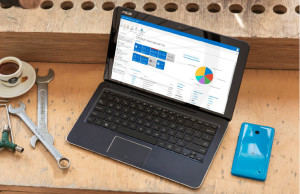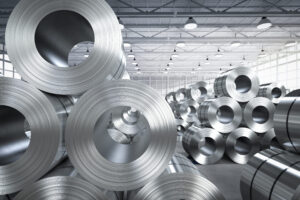
All metal fabrication companies know how difficult and expensive inventory management can be. They need to acquire the best materials in the fastest possible time to ensure that customer specifications are met, products are produced quickly, and profit margins are high.
Enterprise Resource Planning (ERP) software can provide some much-needed assistance in this regard.
What is Procurement ERP?
ERP procurement refers to the steps integrated into an ERP system that are designed to help with the order process. ERP streamlines procurement by automating many labor-intensive processes and helping users track spending and properly manage their budget.
Everything is consolidated into a single system, and as this system works alongside other departments, including production and financing, it means that businesses can track all raw materials from the moment they are ordered to the point they are manufactured and sold.
Using Procurement in an ERP System
The typical ordering process requires employees to check stock, discover what materials are running low, submit purchase orders, and then make sure the materials get to where they need to go.
ERP automates most of this process and provides a simple dashboard that employees can use to track the process.
It begins with inventory management. All materials are tracked. Their size, weight, and condition are recorded as they enter the warehouse. The system can then signal when new materials are required, either because a different size/type is needed for a specific job or because existing stock is running low.
The procurement process then generates and fulfills purchase orders. It maintains a list of approved vendors and purchase options, finds the most suitable one, and places the order.
Quotes are tracked, decisions are made, and the order is placed.
The ERP system will follow the stock as it is shipped before adding it to the system when it arrives.
Additional ERP Modules and Features That Assist with Procurement
ERP software is all-encompassing. It spans many aspects of the business and uses interconnected modules that cover various departments and processes. Some of the modules that can further enhance the procurement process include:
Inventory Management
We have already discussed inventory management and the role that it plays in tracking stock. It is an essential component of an ERP system for the metal fabrication industry, as it prevents overstocking and the costs and risks associated with it. Many smaller companies use inventory management to handle basic procurement, but larger organizations may look to a more dedicated module that covers all facets of both inventory management and procurement.
Manufacturing
ERP systems use material requirements planning (MRP) to track all materials throughout the manufacturing process, ensuring that the correct materials are available throughout each step. It is an important module for any company that manufactures physical products, such as those involved with steel and metal fabrication.
Finance
A complete financial solution that integrates with procurement and inventory management to track all outgoings and incomings. With this module in place, the ERP software can create invoices and even automate payments, reducing the need for employee involvement and providing manufacturing teams with all of the materials needed for the production process.
Supply Chain Management
The supply chain and the relationships within are key to building a successful manufacturing business. Supply chain modules track materials throughout the whole of the supply chain, covering aspects such as shipping costs and shipping times while providing solutions for any delays that occur along the chain.
Order Management
Order management modules work in conjunction with procurement to give employees insights into every ongoing order. They can check the current status of all orders in real time, saving them time and helping to reduce lead times.
Relationship Management
The bigger the business, the more complicated it becomes to juggle vendor relationships. The relationship management features built into ERP software work a lot like customer relationship management (CRM) platforms, but they only deal with the vendor side of things.
Maintaining good relationships is important for keeping prices and lead times stable, and by tracking all order and vendor details and providing synchronization across the entire company, relationship management software makes it easy.
Reports and Analytics
ERP programs are constantly digesting, organizing, and processing data. It’s this data that helps the software to better understand the business and automate key processes, and the data can also give employees actionable insights into every aspect of the ordering and production process.
Employees can generate reports to compare the cost of raw materials from suitable vendors, check the rates at which defective materials are received or defective products are produced, and compare shipping and lead times. With all of this data at their disposal, employees can take action and find ways to optimize procurement, inventory, and production.
Summary: Automate Procurement and Improve Inventory Management with RealSTEEL™
Whether you’re dealing with coil processing, sheeting and leveling, multi-line processing, plate processing, or metal framing, ERP software combines all business processes into a single, easily digestible source that offers real-time tracking and complete visibility.
At RealSTEEL™, we can help you implement a customized ERP integration that meets all of your current needs and is easily scalable. You won’t pay for more than you need and will get a software solution that combines elements such as inventory management, accounting, and human resources, as well as:
- Pipe and tube software
- Metals nesting software
- Flat rolled software
- Plate processing software
- Coil processing software
- And more
If you haven’t joined the ERP revolution, now’s the time to change that. Contact us today to set up a demo.




